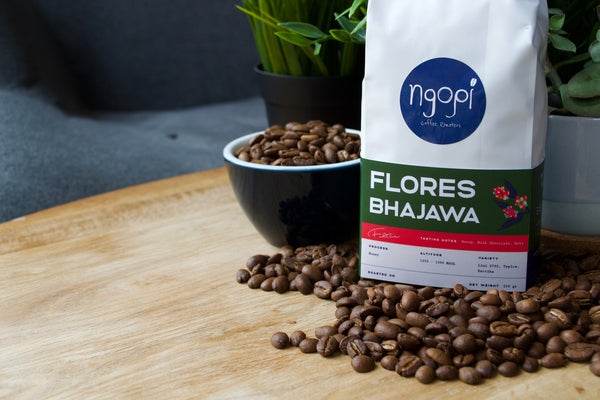
Introduction of Indonesian Coffee
Share

Please take note: This post is subjective and is based on the author's opinion and experience after travelling into several coffee producers across Indonesia.
Why is Indonesian coffee considered inferior in quality compared to others?
When talking about Indonesian coffee, it is not rare that we encounter numerous stigmas regarding its taste. It is believed to be somewhat earthy, woody, and bitter, or even worse, flavourless at times. Determined to debunk this stigma, Ngopi - a café based in Birmingham specialising in Indonesian caffeinated beverages - is determined to show another side of Indonesian coffee by proving that the beans grown in the archipelago would deliver various palatable beverages. Indonesia itself is situated in the top centre of the equator, making the country an excellent location for coffee plantation. Following this fact, questions surrounding the connection between the quality in coffee beans and the site of its cultivation might arise. If anything, the region coffee is grown impacts its flavour, resulting in differing taste between coffee beans harvested across different countries and continents. However, it can't be said objectively that some parts of the world produce more flavoursome coffee beans than others.
How does social behaviour in coffee culture impact the improvements in Indonesian coffee beans?
We know that cultures surrounding coffee drinking have evolved throughout the years, and a lot of them involve not only merely the consumption but also the social aspect that is often associated with the drinking experience. Due to this, trends encompassing drinking coffee give rise to the growth of independent coffee shops that prioritise excellent coffee coming from high-quality beans in Indonesia. Especially in the last ten years, the demand for high-quality beans has skyrocketed in Indonesia, resulting in a massive improvement in the coffee beans produced in Indonesia. As only a small part of the world benefits from this knowledge, Ngopi is keen on spreading the joy of enjoying excellent Indonesian coffee in the UK.
The market doesn't do justice to the real value of Indonesian coffee beans.
There is a reason as to why only a small population is aware of the fineness of Indonesian coffee beans. Outside the archipelago, Indonesian coffee beans are mainly sold and distributed by high street corporations prioritising their financial gain. They tend to purchase lower-grade coffee beans that were produced before the surge in higher-quality beans production. This causes the public only to have access to these beans that are not a reflection of Indonesia's quality coffee beans. It is also likely that they roast the beans quite darkly, inhibiting the beans from displaying its unique flavour.
We can't magically transform lower-grade beans into upper-grade beans.
Not to mention, lower-grade beans are most likely poorly processed and tend to have a rather unusual earthy taste. The reason behind this issue relates to the drying process of beans done by farmers many years back when green beans were dried directly on top of the soil with nothing in between them. The earthy odour coming from the earth then diffuses with the beans, as the product and the ground are within very close proximity. There is an attempt to tackle this problem, and roasters have done it by roasting the beans longer, hoping the process will eliminate the unpleasant dirt-like scent. While it does its job at getting rid of the smell, it is not sufficient to produce excellent quality beans, as the lengthy roasting process causes the beans to smell burnt. In the end, it is impossible at this point to create high-quality coffee beans since merely improving the quality of lower-grade beans isn't enough.
There is more content coming right up! Generally, higher-quality beans are more costly than lower-grade beans. In our next post, we will specifically be talking about the reasons behind the high price of upper-grade Indonesian coffee beans.
